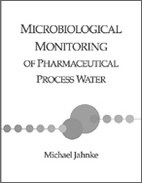Microbiological Monitoring of Pharmaceutical Process Water (single user digital version)
- Format
- PDF Single user
- Member Price
- $120.00
- Nonmember Price
- $149.00
- Government Price
- $120.00
Please sign in or become a member to purchase items from the PDA bookstore.
Following a discussion of the regulations to be followed in the microbiological control of water processing and distribution systems, this work focuses on practical aspects in the pharmaceutical environment and gives advice on the methodology to be used, e.g., for sampling, the selection of nutrient media, incubation conditions, and identification of contaminants. It also describes trend analysis strategies and quality assurance to help you ensure consistent validation of water processing and distribution systems. The practices here were developed in a pharmaceutical manufacturing facility that produces drugs for parenteral use. The design, installation, and operation of a system to produce Purified Water and Water for Injection is presented and the practical aspects of microbiological monitoring is discussed.
Available to download. Prior to purchase please view the download instructions and Terms of Usage.
Format: PDF (1 file - 23.6
MB)
Table of Contents
Table of Contents:
I. Intention
of this Book
II. Introduction
III. Purified Water and Water for Injection
Systems
IV. Requirements of Water Systems and Validation
V. SOP:
Microbiological Monitoring Plan
VI. SOP: Validation of a Process Water
Distribution System
VII. Trend Data Analysis of Microbiological
Monitoring
VIII. Method Validation
IX. Microbiological Leak Test of Supply
Pipes
X. References
XI. Further Reading
About the Authors
About the Author
Dr. Michael Jahnke
studied biology at the universities of Bielefeld and Hanover,
Germany. He obtained his Ph.D. from the Institute of Microbiology at the
University of Hanover. From 1990-1994, he was Head of the Biology Department at
IBR Forschungs GmbH and is now Head of the Quality Control/ Microbiology
Department at Pharma Hameln Gmbh. In this position, he is responsible for
hygiene aspects, microbiological quality control, process validation, and risk
analysis strategies. He is a member of the American Society for Microbiology
(ASM), the Parenteral Society, the Deutsche Gesellschaft fur Hygiene und
Mikrobiologie (DGHM), and he serves on the Editorial Board of European
Journal of Parenteral Sciences of the Parenteral Society.

